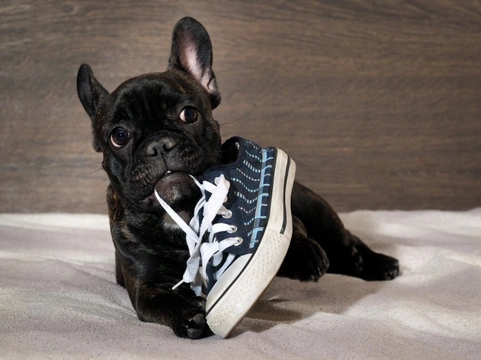
The four most common canine behavioural problems
Whether your dog is large, small, young or old, they all have one thing in common: they need to be trained, managed and kept under control, both in order to ensure the safety of your dog and the people that they come into contact with, and simply because an unruly dog can be a real pain!
While different dog breeds have different intelligence levels and so, there is a lot of variation between what you can expect different dogs to be able to learn and achieve, all dogs should be at the very least be obedient, responsive, and able to follow the most basic and important commands.
However, whether your dog is as smart as a whip or a little slow on the uptake, when it comes to canine behavioural problems and issues that can come up in training, the same old issues tend to come up time and time again as challenges for dog owners.
In this article, we will look at the four most common behavioural problems among dogs, and provide a little bit of insight into the reasons behind them, and how to tackle problems of this type with your own dog. Read on to learn more.
Poor recall or running off
Recall is the most important command for all dogs to obey, but it is also often the most challenging one to achieve perfect compliance with.
In a dangerous situation, such as if your dog is running towards a road, recall might be the only thing preventing an accident, and this, accompanied with the frustration that selective deafness in the dog can lead to, means that recall is often highly loaded, and all too easy to get wrong!
If your dog is not good about coming when called or is apt to bolt off on their own and ignore your attempts to call them back, this means that they see the reward of doing their own thing as greater than the reward of coming back to you. This is something that you will have to commit to resolving by means of working with your dog; for more information on this, check out our previous article.
Chewing and destruction of property
Dogs can be highly destructive when it comes to their toys and even things that they should not be getting their teeth into, and if this sounds like your dog, you are probably all too aware of how inconvenient and destructive chewing can be!
One of the main issues when it comes to dealing with inappropriate chewing is that chewing and gnawing on things is natural for dogs, and they actually need to be able to do so-which means that it is not possible nor desirable to teach your dog to stop chewing things altogether.
Instead, you should ensure that you provide plenty of appropriate toys and objects for your dog to chew, in a variety of different shapes and sizes. Offering alternatives and teaching your dog about what they can and cannot chew is the key to resolving problem chewing!
It is also important to ensure that you are meeting all of your dog’s needs for exercise and stimulation, and that you do not leave them on their own with nothing to do for long periods of time.
Jumping up
Jumping up is a common inconvenience for dog owners and their guests, and often, this is a habit that becomes ingrained when the dog is a puppy, and no one sees such behaviour as a real problem.
A dog that is apt to jump up runs the risk of scratching someone or knocking them over, as well as of course potentially damaging clothing and/or getting mud all over you!
Teaching your dog not to jump up is best begun when your dog is young, but it is never too late to start!
Teach your dog a command for “down” and give them a treat when they comply; do not acknowledge them or otherwise reward their behaviour when they do jump up, and they should soon learn that this does not get them anywhere!
Dominance
Dominance in dogs can be a tricky and complex issue, because it is not always easy to tell when your dog thinks that they are the boss! A dominant dog is more likely than others to act out, as they see themselves as the ruler of the household and everyone else as their subordinates.
Refusing to get off a chair when told, being pushy about food and attention and being very territorial are all potential indications of a dog that things they are in charge-and often, the problem is most acute in small and toy dog breeds, because people don’t take their bad manners as seriously as they should!
Ensure that you continually work to reinforce your dog’s appropriate place in the pack structure that is your family, and have firm house rules in place that everyone must follow to avoid your dog inadvertently getting the upper hand!



